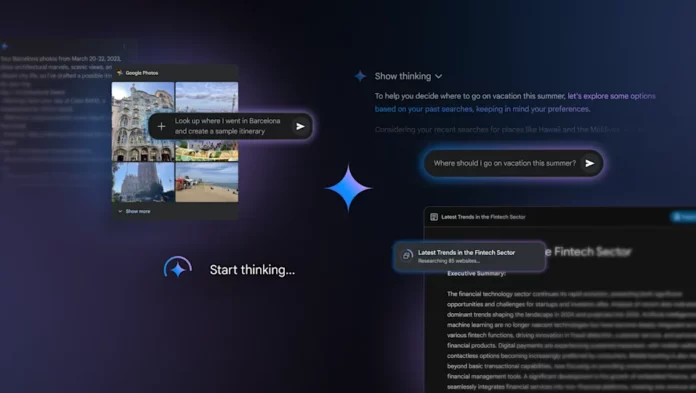After being one of the first companies to launch Deep Research late last year, Google is now making the tool available to everyone. Starting today, Gemini users can try Deep Research for free in more than 45 languages – no Gemini Advanced subscription required. For the uninitiated, Deep Research allows you to ask Gemini to create comprehensive but easy-to-read reports on complex topics.
Compared to Google’s new AI mode, Deep Research is slower than a regular chatbot, and that’s by design. Gemini will first create a research plan before it starts searching the web for information that might be relevant to your query. When Google first announced Deep Research, it was powered by the powerful but expensive Gemini 1.5 Pro model. With today’s expansion, Google has updated Deep Research to run on a new experimental model, Gemini 2.0 Flash Thinking Experimental, a wordy name that means it’s a thought chain system that can break down problems into a series of intermediate steps.
“This extends Gemini’s capabilities across all stages of research-from planning and search to reasoning, analysis, and reporting-creating high-quality, multi-page reports that are more detailed and insightful,” Google says of the update.
If Deep Research sounds familiar, it’s because a variety of chatbots now offer this feature, including ChatGPT. However, Google was ahead of the curve. Not only was it one of the first to offer this tool, but it also made it widely available to all of its users, outpacing competitors like OpenAI.
Separately, Google announced the launch of a new experimental feature it called Gemini with personalization. The same Flash Thinking model that allows the company to provide in-depth research to more people will also allow Gemini to shape its responses based on information from the Google apps and services you use.
“With your permission, Gemini can now tailor its responses based on your previous queries, saving you time and providing more accurate answers,” Google says. In the coming months, Gemini will be able to pull context from additional Google services, including Photos and YouTube. “This will allow Gemini to provide more personalized information, drawing on a broader understanding of your activities and preferences to deliver answers that really resonate with you.”
To enable this feature, select “Personalization (Experimental)” from the model drop-down menu in the Gemini Apps interface. Google explains that Gemini will only use your search history when it determines that the information might be useful. A link banner will allow you to easily disable this feature if you find it intrusive. Gemini and Gemini Advanced users can start using this feature on the web today, with the mobile version coming later.









